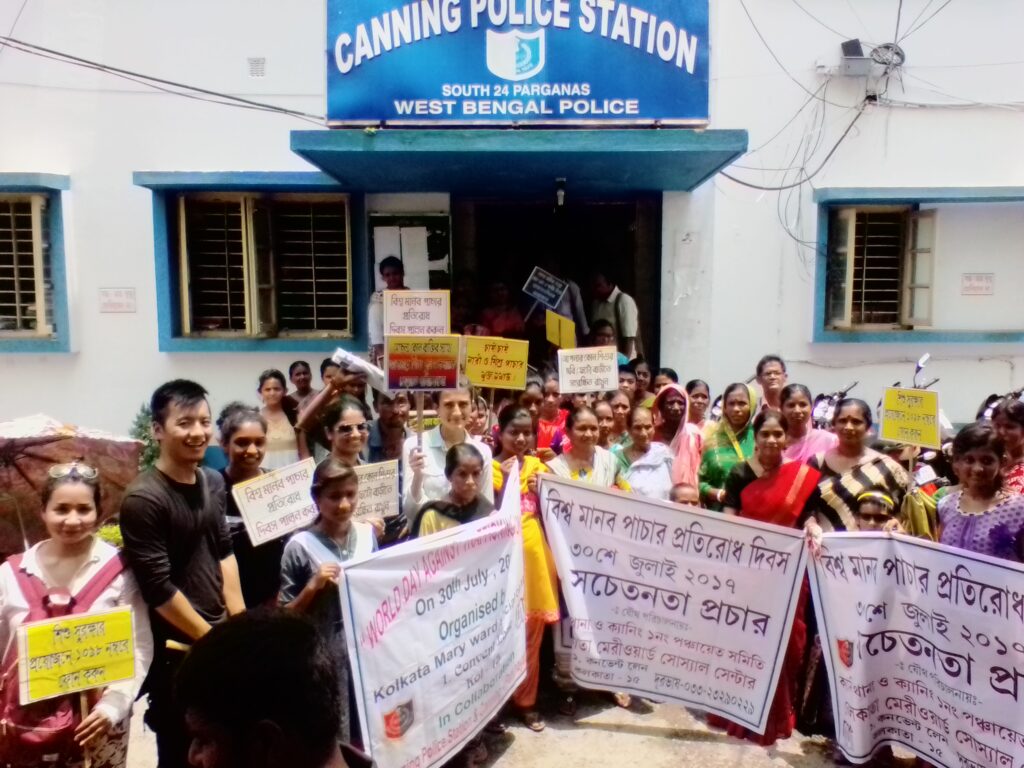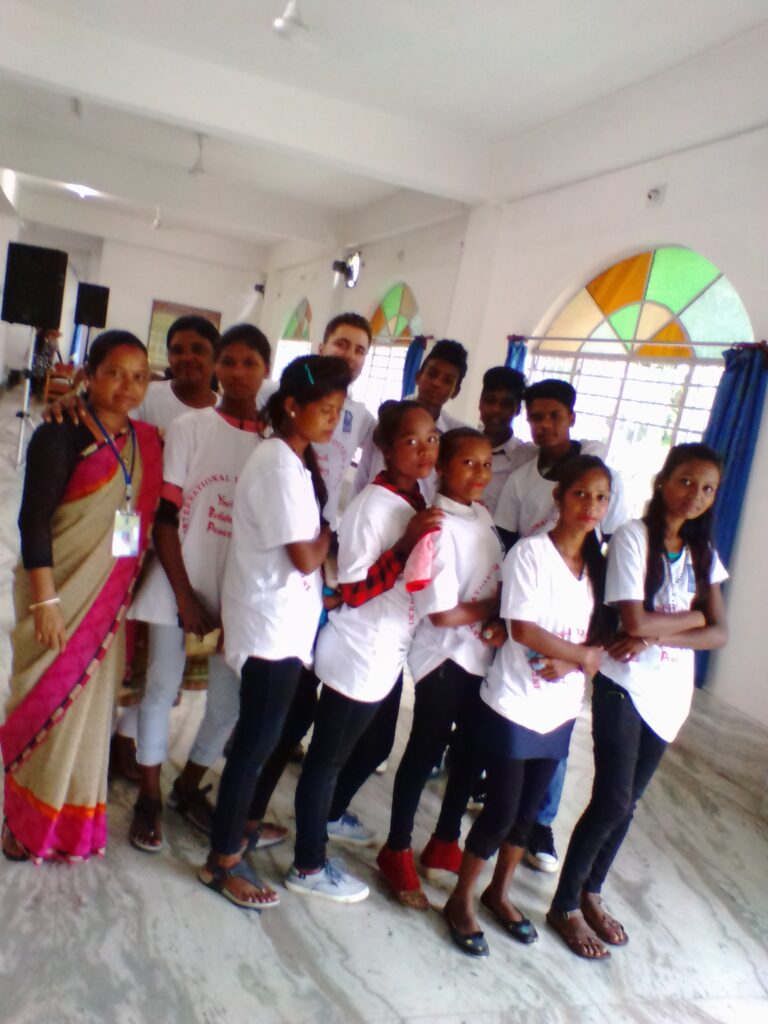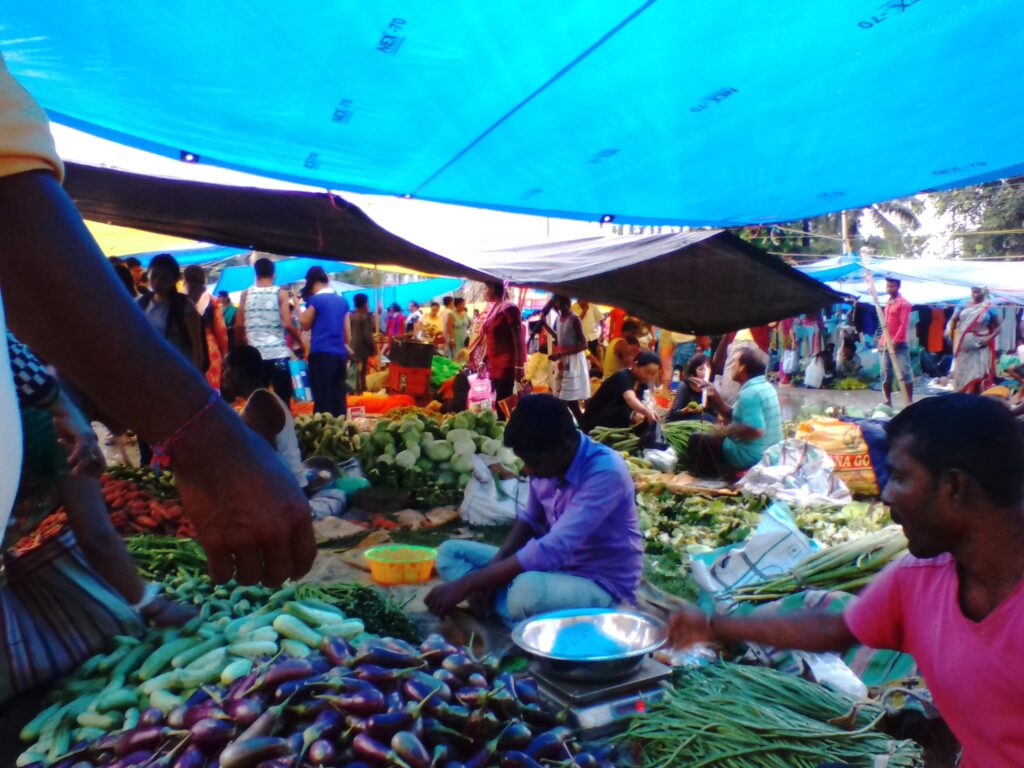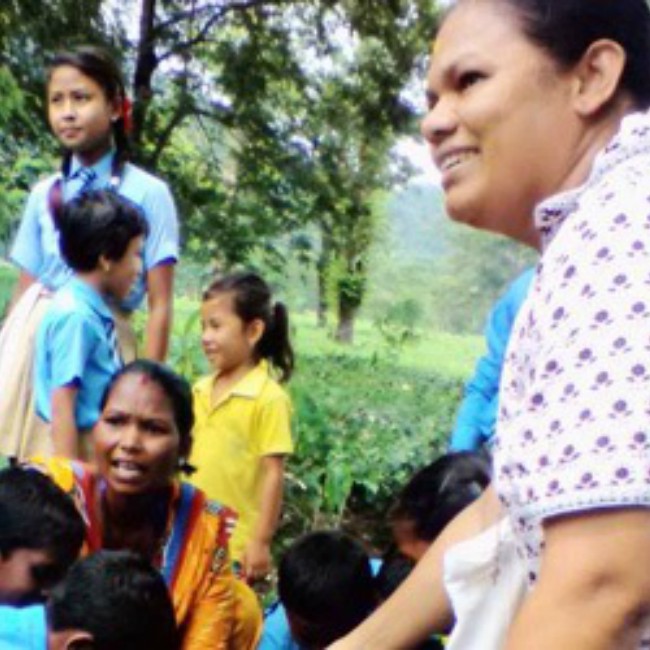My Work in the Tea Gardens of North Bengal
There are ways to help people in need. To help people escape the cycle of poverty though, it is best to teach them how to be self-sustainable and how to assert the rights that they are entitled to as human beings. I say this as a young man who, through the Queen Elizabeth Scholarship, went to go work in West Bengal from May 22nd 2017 to August 22nd 2017 as a volunteer. For three months, I worked with Darjeeling Mary Ward Social Centre, a non-governmental organization in Siliguri dedicated to empowering the lives of women and children from impoverished tea gardens. I have gained much knowledge and have improved my professional skills while working with DMWSC. During this time, I had read much about laws of the Indian Constitution, of the current living situations of tea garden workers and of their bare minimal access to minimum wage payment. From this acquired knowledge, I was prepared to go to the field, where I would hear of the progress of socioeconomic development according to the community in question. With this in mind, I would like to briefly speak of Sukhna and Jogesh-Chandra Tea Estates, for it was in these two plantations that I have kept my greatest memories of this three-month long internship.
For me, it was a unique and uplifting experience to see how the effects of my work conducted in the office could one day come true within Sukhna. Here, for the first time outside of my native country, I saw how my own work could impact a small global change.
In Sukhna Tea Plantation, there is an Ethical Enterprise Initiative which allows young women from the community to develop skills of self-sustainability as they pursue further education. My contact with these young women is tied with the writing of two new proposals that shall be presented to the NGO’s donors within the upcoming months. I assisted my colleagues with the compilation of these proposals that will further allow the young women of Sukhna’s Ethical Enterprise Initiative to acquire new and creative artistic skills. I had the chance to meet some of these girls in person. To have seen them at work in making products of Jute-string cloth was impressive and heartwarming. One can only marvel at the collective interest and dedication that they share in creating jute products that are sold in the market. Their work ultimately reflects skills of personal empowerment that they have gained throughout the training period. I know that if it were not for the emergence of a beautician course proposal and of a new cloth-based material initiative proposal, the Ethical Enterprise Initiative would not have continued. The need to also continue this initiative was essential, seeing as many of these young women depended on this initiative’s projects for the continuation of their education and of their self-sustainability. It was as I worked in the office and visited Sukhna that I got to understand what were the needs of the young women in this community. For me, it was a unique and uplifting experience to see how the effects of my work conducted in the office could one day come true within Sukhna. Here, for the first time outside of my native country, I saw how my own work could impact a small global change.
Just like Sukhna, Jogesch Chandra Tea Estate is another place that has marked me profoundly. In being the most distant tea plantation from the DMWSC office in Siliguri, I had always looked forward to going there. If my interest in going there was strong, it was because the warmest welcomes were always extended to me and to my co-workers upon our arrival. Following the running of awareness programs in education and in the transmission of legal rights, I then had the chance to interact with Jogesh Chandra’s youth. In having interacted closely with them, I got to understand what were their dreams, worries and goals. Habil Kharia and Joy Mahali, who both work with DMWSC and who hail from Jogesh Chandra, became two close friends of mine. To add on further, it was also due to this friendship among the three of us that I became close with the people of Jogesh Chandra. These two individuals displayed a fervent interest in developing the living standards and freedoms of people in their community. In my heart, I knew that each person’s talents were at play in Jogesh Chandra, whether this was through bringing the community’s people together for an awareness program, through speaking with authorities who dictate local policies or through offering simple words of inspiration to some discouraged tea workers who can create lives in their favour and best interest.
In having worked with DMWSC, my speaking skills and courage in addressing matters of social justice have grown stronger.
Truly, I would say that my knowledge of the factors pertaining to plantation labour has increased. Now I am aware of the lifestyles of peoples and of the realities they face when they work in tea plantations or in sugarcane fields. For me, the way I perceive the image of injustice is largely due to what I have observed in tea and sugar plantations. In having worked with DMWSC, my speaking skills and courage in addressing matters of social justice have grown stronger. The close relationships that I have also developed with my colleagues and with the tea community residents affirms the great interest I have in meeting others and that I have in trying to understand the reality of others who face challenges separate from my own.
In having returned to Canada, I have been left with images of North Bengal’s tea hills and mountains. From them, I will recall for many years the faces of those whom I have met. As I remember how we spoke to each other and how we interacted, I cherish how the region’s tea labourers also helped me discover how their perception of social justice and socioeconomic development is of a historical complexity that is firmly entrenched and well-interconnected. We truly all have a role in assuring the current continuation or potential remodelling of labour in India’s tea plantations. If we wish to assure the latter, then we must take an active role in working on behalf of the labourers’ collective interests.



